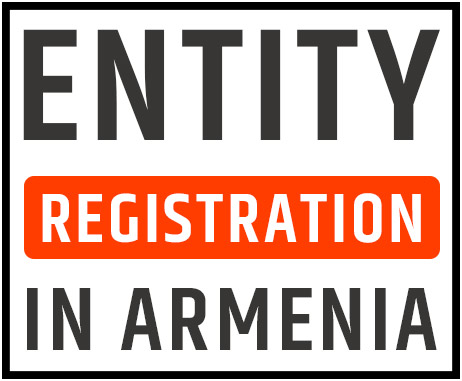Armenia Taxation Guide

Armenia’s taxation system has undergone significant reforms, becoming more favorable for local and foreign business owners and investors. The majority of taxes are levied at the federal level, where they are paid into the budget and have a direct impact on the economy. The following survey of the taxation system in Armenia, tax types, and legislative regulations for 2023 is aimed at providing a robust guide for individuals and companies starting businesses in Armenia.
General overview of the Armenian tax system
The Republic of Armenia has a unified tax system, which, in turn, is part of the tax relations regulated by the Tax Code of the Republic of Armenia. The tax revenue reported as of September 2022 was $398.320 million, an increase compared to August 2022 ($330.837 million). The highest all-time revenue was in April 2022 ($468.124 million). The increase in tax revenue is mostly driven by VAT, stamp duties, and tax duties on mining products’ exports.
The latest news in the field is the “Tax Revenue Management Program for 2022–2025,” which promises to bring changes to the system and increase the competitiveness of the business environment. According to the document, the changes will improve tax administration and compliance, expand tax bases by reducing some benefits, increase the tax burden on some activities, etc. The major change is the introduction and implementation of general declarations of income. The system is more aimed at improving the targeting of the spending policy.
The business culture of Armenia; business types and registration
Armenian business culture is formal and relatively similar to that of Eastern European countries, though specifics vary by industry. The market is open to foreign investors and regulated by the Law on Foreign Investment, providing most of the internationally recognized protections for investors.
The registration of a legal entity is carried out by the State Register Agency of Legal Entities within the Ministry of Justice of the Republic of Armenia.
Legal entity types in Armenia
The type of legal entity you choose for your business at the start can have significant implications down the road, even if you later decide to change it. But making a change to your business structure can have tax consequences and lead to an unplanned business liquidation. So it’s important to choose carefully from the start.
Private Entrepreneur (PE): A PE can be an individual who registers with the State Registry and obtains a tax identification number. It is the easiest and cheapest form to register and maintain, making it more suitable for a business owned by one person. Here are the answers to the top questions people have concerning PE registration.
Limited Liability Company (LLC): It is the most common type of legal entity in Armenia, providing limited liability to shareholders (maximum of 49 members). LLC is chosen for its low-budget setup and maintenance, fewer formalities, and simple management.
Joint-Stock Company (JSC): This corporate form is more suitable for medium- to large-sized businesses with several shareholders. It has higher privacy and more options to structure the share capital.
Partnership: Creating a partnership can take two forms: forming a legal entity or entering into an agreement between partners. Compared to other legal entities, partnerships are less regulated, allowing more freedom and flexibility.
Cooperative: This type of entity refers to an association of workers where each of them has one vote. The profits are shared based on contribution, not capital. The form is more suitable for small businesses.
Private Equity Fund: The company form, registered by the Central Bank of Armenia, is used to make investments in real estate, securities, etc, with tax benefits, tax-free distribution of profits, etc.
Non-Corporate Forms of Doing Business: Parties may agree to enter into non-corporate collaboration based on agreements.
Non-Profit Organizations: This type of organization is generally a foundation or a public association that can still engage in income-generating businesses. In this case, the income is taxed at the rates of profit organizations.
As Private Entrepreneurs and LLCs are the most frequent legal entities in Armenia, here is a comparison table for those legal entities for your information.
| Private Entrepreneur | LLC | |
| Accounting | Minimum documentation. Registration is done on the spot. | Mandatory documentation package. Registration is done within two business days after submission |
| Tax obligations | Reporting and tax payment | Reporting and tax payment |
| Employees | The right to hire | The right to hire |
| The seal | can have | can have |
| Address | Registered at the place of residence without an obligation of having activity address | Must have a business address |
| Responsibility | Bearing responsibility for the property he/she owns | The founder is not responsible for business obligations (except for secondary or criminal liability) |
| Income management | Free Disposal | Received in the form of dividends, distributed after making a profit |
➊ It should be noted that legislation in the Republic of Armenia provides special penalties for fraud which might be applied to and are imposed liability on the directors and chief accountants as taxable obliged persons.
For non-residents
Representative offices and branches. Foreign companies may choose to register as a representative office or branch in Armenia rather than establish a new legal entity. This form does not have the status of an independent legal entity. Instead, it is governed by the rules and regulations of the foreign legal entity. The approved activities of a representative office include representing and protecting the interests of the home office, but they may not conduct independent business activities. Meanwhile, the permitted scope of activities for a branch is much wider, as it is allowed to perform all necessary business functions and activities on behalf of the head office.
For foreign businesses, it is highly advised to collaborate with a local lawyer or a representative when registering a business in Armenia to minimize the risks and ensure the compliance of processes with tax, law, and labor, also take possible advantages of tax benefits.
There are no restrictions on foreigners registering a legal entity or becoming shareholders in a local company.
The electronic registration of a legal entity in Armenia is carried out at www.e-register.am/en/ by providing the following information and documents.
- Company name
- List of owners and partners
- Company manager
- Registration address
- Charter capital amount
- Shareholders’ and managers’ information
- Shareholder resolution
- Company charter
- Confirmation of payment of state overhead
- Personal information about the founder (ID or passport, social security number)
What is not required for registration?
- Physical presence in Armenia
- Minimal capital
- Resident permit
- State duty
Here are the next steps after registering a company.
- A seal (not mandatory)
- Bank account
- Registration in the online page of Tax Revenue Committee as a taxpayer
- A trademark (not mandatory)
The Tax system in Armenia

In the Republic of Armenia, there are general and specific taxation systems.
- Within the framework of the general taxation system, organizations shall be taxed under VAT and/or profit tax.
- In specific taxation system:
- within the framework of the system of turnover tax, organizations shall be taxed under turnover tax replacing the VAT and/or the profit tax,
- within the framework of the micro-enterprise system, organizations are exempted from VAT, profit tax, and turnover tax in the cases defined by Tax Code.
According to the Republic of Armenia Tax Code, newly registered companies can apply for a specific taxation system within 20 days after registration. After missing the mentioned deadline, the company will not have the opportunity to work under a specific taxation system.
The specific taxation system in Armenia
Turnover tax
Turnover tax is a form of a sales tax, with tax rates normally in the range of 1,5% to 5% , replacing profit tax and VAT. The annual threshold of turnover tax is AMD 115 million (approximately, $300,000).
Micro-enterprise
Micro-enterprise, defined as businesses with annual sales of less than AMD 24 million (approximately, $62,000) are exempt from profit tax and VAT. However, there is a list of excepted businesses that cannot take advantage of this tax system, such as traders based in the capital city of Yerevan and the majority of service businesses.
Corporate Income Tax (CIT)
Armenian-resident entities, and non-resident entities doing business in Armenia through a Permanent Establishment, are liable for CIT. Armenia taxes residents on their worldwide income; non-residents are subject to CIT only on their Armenian-source income.
The standard CIT rate is 18%.
➋ All the acquisitions should be followed by the appropriate supporting documents. This means that received invoices should include the information about the name, TIN, and address of the customer.
Value Added Tax (VAT)
The standard rate of VAT on domestic sales of goods and services and the importation of goods is 20%. Exported goods and related services are zero-rated.
Withholding taxes
Payments to non-residents are subject to the following withholding tax rates.
- Payments for insurance, reinsurance, and transportation are subject to withholding tax at the rate of 5%.
- Interests, royalties, income from the lease of property, and capital gains (except capital gains from the sale of securities) are subject to withholding tax at the rate of 10%, and dividends paid to non-residents are subject to withholding tax at a 5% rate.
- Capital gains from the sale of securities are subject to withholding tax at the rate of 0%.
- Other income (from services) received from Armenian sources is subject to withholding tax at the rate of 20%.
Withholding tax rates for non-residents may be reduced or exempted under a relevant Double Taxation Avoidance Agreement (DTAA).
Income Tax
Individuals in Armenia are subject to personal income tax (PIT) and social security payments. In December 2022, the PIT rate was 21%. Starting from 1 January 2023, personal income tax has been reduced to 20%.
Types rates of income tax for the following incomes are:
| Types of taxable income | Income tax rate |
| Employment income | 20% |
| Income based on civil contracts | 20% |
| Interest | 20% |
| Dividends | 5% |
| Royalty | 10% |
| Rental income | 10% |
Social security payment
Besides PIT, employees are obliged to pay social security payments, the rate of social security payment is presented below:
| Social Security Payment Rate in Armenia | |
| If the monthly gross salary is less than AMD 500,000 | If the monthly gross salary is more than AMD 500,000 |
| 5% | 10% minus AMD 25,000 |
The maximum threshold for the calculation of the social security payment is AMD 1,125,000.
Stamp fee
According to the Republic of Armenia Law “On compensation for fallen or damaged servicemen during the defense of the Republic of Armenia” Armenian resident individuals who work on the RA territory or/and outside the RA territory shall pay to the state budget a stamp fee. For non-Armenian residents, the object of taxation will be the income received from the work made on the territory of RA.
The rates of stamp fees in Armenia are the following:
| Gross Income | Stamp fee amount |
| Up to AMD 100,000 | AMD 1,500 |
| From AMD 100,001 to AMD 200,000 | AMD 3,000 |
| From AMD 200,001 to AMD 500,000 | AMD 5,500 |
| From AMD 500,001 to AMD 1,000,000 | AMD 8,500 |
| From AMD 1,000,001 and more | AMD 15,000 |
Taxation for IT companies in Armenia
Newly registered IT businesses in Armenia (PE and company) can apply for an IT Start-Up certificate, which exempts them from corporate income tax until December 31, 2023. (Most probably, the state program will be extended for the next five years as well.) The certificate reduces the payroll tax (PIT) to 10% from the standard 20%.

According to the law, businesses must file a petition for a tax certificate within 90 days of registering their business. However, this benefit is not applicable to larger companies with 30 or more employees or to subsidiaries or branch offices of foreign companies. The IT start-up certificates are issued by the Ministry of High-Tech Industry of Armenia.
Tax benefits
Besides tax benefits for small and medium-sized businesses, the following tax benefits are valid in Armenia:
- VAT payment is postponed for 3 years in the case of import of goods within the framework of investment programs by organizations and individual entrepreneurs selected by the government decision.
- Profit taxpayers producing handmade carpets are exempted from paying profit tax.
- Businesses implementing a business plan approved by the Government of the Republic of Armenia (except for a resident operating in the trade or financial sector) may deduct the number of additional wages paid by them from the amount of profit tax within two years, but not more than 30 percent of the amount of profit tax to be paid, according to the government’s decision.
- For those implementing a large export project approved by the Republic of Armenia government (for the performance of certain works outside Armenia or the activity of supplying goods outside Armenia, except for minerals, precious metals, and stones, and their products, goods subject to excise tax) the profit tax rate is 5% for at least 40 billion drams in case of export, 2% in case of export of at least 50 billion drams.
- Activities in the border zones of Armenia are exempted from VAT and profit tax.
- In the Dilijan community of the Tavush region, the activities within the implementation of projects with an investment of at least 2 billion drams are exempted from VAT and profit tax.
- Businesses operating in the free economic zones of Armenia are exempt from the obligations of paying profit tax, value-added tax, property tax, and customs duty.
Recent update: May 2023
—
Tower International Consultants CJSC can help you register an entity in Armenia and can thereafter handle the tax, accounting compliance, and legal work of the entity, by outsourcing.
Tower International Consultants also offers support for IT companies in Armenia. We have a team of professionals who can help you apply for state support programs, and we can also consult with you on how to use the tax and legal privileges that the state offers. Tower also offers discounted fees to the IT companies, in order to encourage investment in this sector of Armenia’s economy.


